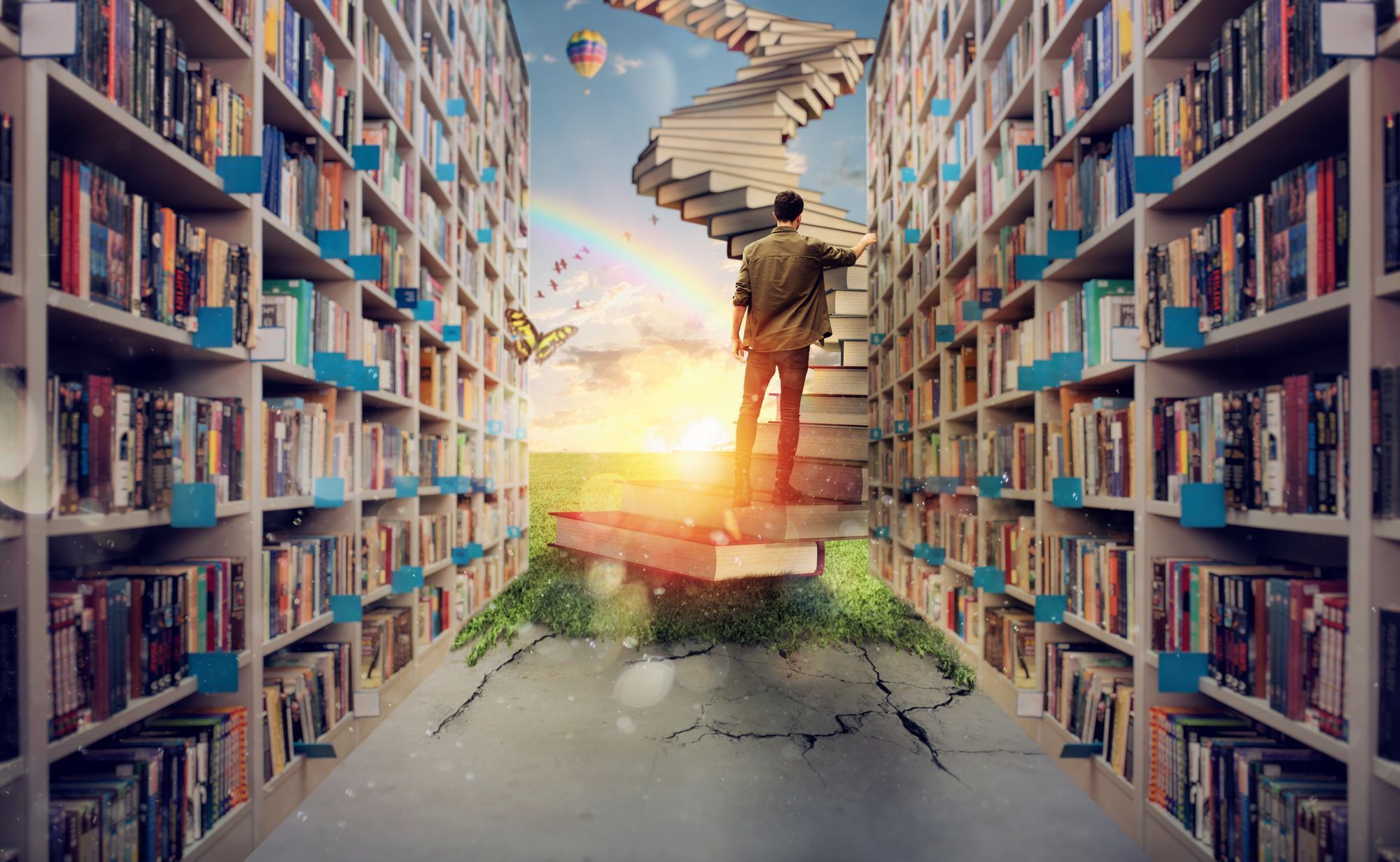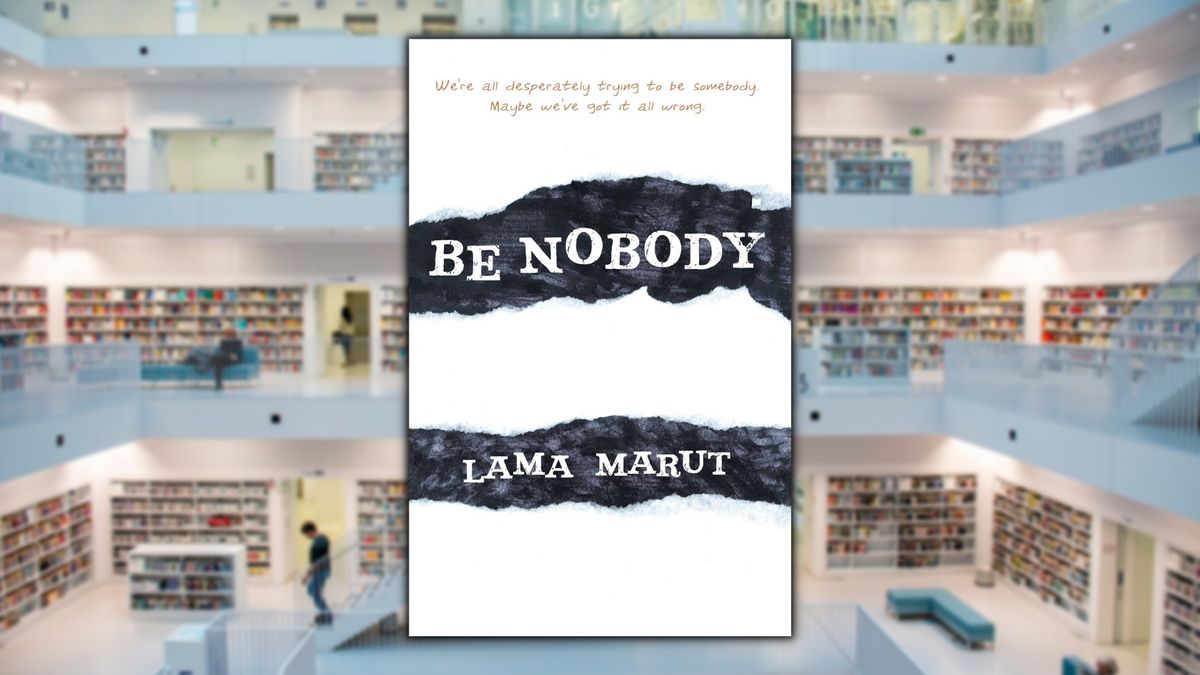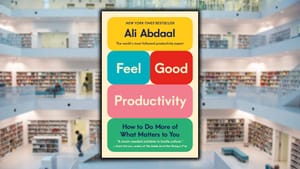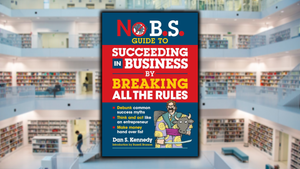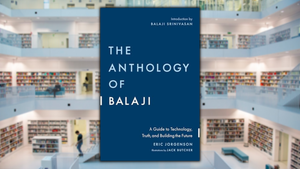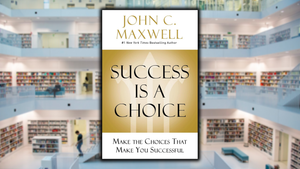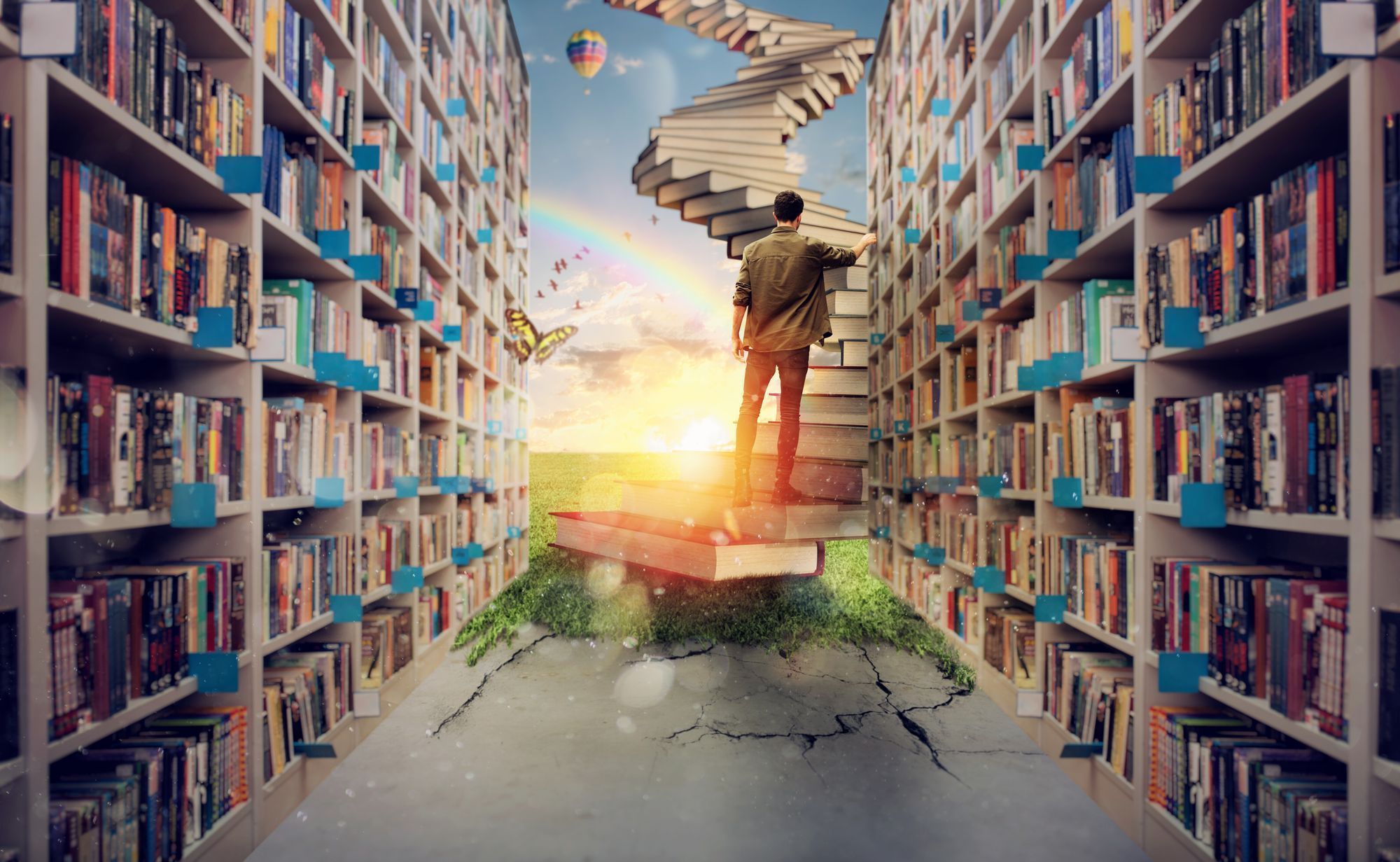
This Book is For:
*For everyone who's exhausted after a long day of being surrounded by people constantly asserting their own specialness and superiority, and who wants to learn how to resist the relentless pressure to keep up with such egoistic displays.
*Individuals who are interested in Eastern philosophy, the various wisdom traditions, and what they all have to say about the reality (or unreality) of the self, the origins of such ideas, and what it all means in the context of our daily lives.
*Anybody who's comfortable enough with themselves to risk taking a direct hit to the ego, from a wise, compassionate teacher who wasn't afraid to "shake things up" every now and then!
*People who wish to learn more about themselves by discovering what the self is not, what it can be used for, and how they can gain happiness, peace, personal freedom, and self-knowledge, while at the same time respecting the freedom and beliefs of others.
Summary:
“Somebody who thinks they're a nobody is self-consciously defining themselves as such, whereas somebody who has become nobody is unselfconsciously absorbed in something much greater.
'Nobody,' as we use the term here, refers to our deepest nature, our 'true self,' which is ever-present and in no need of improvement.
It is our highest source of joy and strength, the eternal reservoir of peace and contentment to which we repair in order to silence the persistent demands and complaints of the insatiable ego."
-Lama Marut
The philosopher Alan Watts believed that the most fascinating question one could ever ask was simply, "Who am I?"
He was right in that the answer is so elusive, so bottomless, as to never give us a chance to reach any sort of definitive conclusion. It's a question we could keep asking about ourselves, over and over and over again for the rest of our lives, and still not have a complete, straightforward answer to.
Yet, wherever we look today, we see people constantly, insistently pushing their own identities in our faces (either their group identity or their personal identity), aggressively asserting that they are uniquely special and marvelous and that we should recognize this about them.
Of course, we are all unique. We are all worthy of infinite, unconditional love and positive regard. The trouble arises, however, when we go around trying to be more special than everyone else, and when we do things like take extreme pride in what we have that others lack. Or the groups that we're a part of and they're not, etc.
It's all so...tedious and boring! And it's also pretty much constant.
In this book, however, Lama Marut demonstrates the immense and enduring freedom that comes with giving up that whole game and just being nobody. Which, paradoxically, allows you to be yourself.
Giving up this unhealthy desire to be seen as special and important can still allow you to feel connected to people who share your history, group identity, etc., but it also helps you feel connected with everyone else, which makes the whole world better off, not just our own narrow little group.
The trouble, as Marut explains, is that this drive to be somebody usually means that we're striving to be somebody else. As you'll come to see, this makes it even more difficult to find out who you really are! If you're always trying to be somebody else, you'll never discover who you already are and what that means.
Marut's solution (which is, really, the timeless, eternal solution reached by sages and mystics throughout history and all over the world) is to deliberately become nobody. After all, nobody's perfect. So why not be nobody?
Alright, so who is this guy anyway? Who is this collection of names, graduate degrees, and personal characteristics who called himself Lama Marut?
He has since passed on, but his real name was Brian K. Smith, and he taught for more than two decades, first at Columbia University and later at the University of California until he retired in 2004. He also lived as a Buddhist monk for eight years before "reemerging" into mainstream society to help people everywhere become more fully themselves.
His basic premise is that nobody, it seems, wants to be just a nobody. We're all trying to "be somebody," but it's that very drive that is separating us from the connection we all need in order to thrive, increasing our stress, and strengthening our selfishness instead of a healthy concern for the well-being of both ourselves and others.
The important point here is that "being nobody" is worlds apart from "being nothing." Rather, it's this balance of basic humility with the genuine pride of being who you really are.
It's selfless service to and connection with others while maintaining your sense of self, and taking care of yourself and your own well-being. It's loving yourself and loving others, giving and receiving, living in the world, and believing yourself to be important, while also not taking yourself so seriously all the time.
It's not an impossible state to achieve, but it's going to require that you believe several seemingly contradictory ideas at the exact same time.
One thing it doesn't require, though, is that you stop trying to make an impact in the world, or that you stop striving to accomplish big things in your life. It just puts the whole game in perspective as a game, one that is not zero-sum, and one that is more infinite in nature.
I won't pretend that this is an easy balance to maintain.
In fact, you and I are going to be going up against a world where seemingly every single person we encounter is trying to convince us that life is this giant competition where if we're not the absolute richest, thinnest, most beautiful, most brilliant, and uniquely special snowflake ever to walk the earth that we're somehow losing the game.
This couldn't be further from the truth.
The truth is more liberating, astonishing, and wonderful than modern advertising and social media would have you believe. You are more adequate than those forces would have you believe. You are worth something - worth everything, in fact. And you know what?
So is everyone else. And if you can resist the endless external pressure to "become somebody" and instead "be nobody," then the game of life starts to become a whole lot more magical.
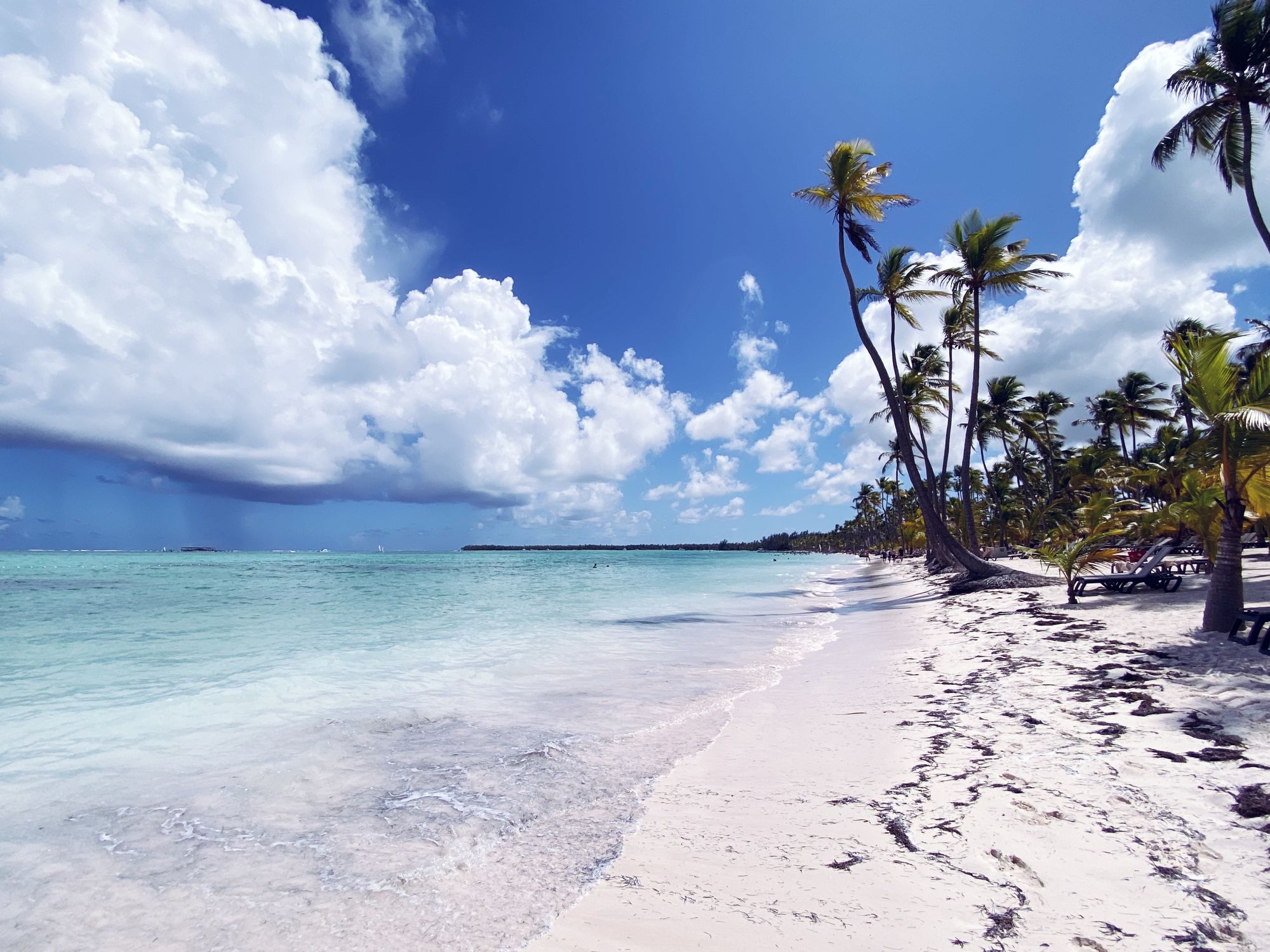
Key Ideas:
#1: The Only Self You've Ever Had
"The idea of the self is the only self we have ever had."
This may sound obvious, but in your entire life, you will never be able to experience the world as anyone other than...you.
You're it. You are "trapped within your own subjectivity" as those pretentious philosophers might say. There will literally never come a time in normal, waking reality when you are able to stand outside yourself and experience the world as not-you.
The Eastern spiritual teachers like Lama Marut go even further than that and claim that this Self that you think is so real and so obvious doesn't exist at all. At least not in any sort of "unchanging state." That's the easiest way I've found to understand their position.
It's not that they deny reality completely and claim that you don't actually have arms and legs and a beating heart, feelings, emotions, memories, etc., but that none of those things are the real You.
If you go through them one by one and ask whether to have those things means that you have a Self, you'll find that none of those things constitute the essential "You." And what exactly does constitute that absolute identity is kind of tough to figure out!
If it's not your name, or your height, or your beliefs, or your knowledge, what is it? What is it about yourself that's unchanging and that you can always point to as the essential component of your Self?
Everything about you, from your memories, your physical body, your thoughts, your consciousness, and your past, are constantly shifting, changing, evolving, and replacing themselves as you move through time and hurtle forward in space. But Lama Marut points out that we have this persistent idea of the Self as some real, unchanging, unbelievably important entity, and that's the problem.
This idea of the Self is the only Self we've ever had, and our anxious, aggressive defense of this Self has been the source of a large part of humanity's most shameful behavior. This is true on both the interpersonal and international levels.
But is this just "how it's going to be" for all time? Or can we change? Who can we change? Is it possible to change ourselves? And perhaps more ambitiously, can we change the world?
#2: Change You, Change the World
“Since none of us has an objective view of the external world, and since all of us only experience the world from our subjective perspective, if we change our subjective perspective, we change our perspective on the world.
And the world seen from the subjective perspective is the only knowable world there has ever been, is, or will be for any of us. So we might as well just call it 'the world.'
Change you, change the world."
When you change the way you look at things, the things you look at change. Maybe not their external, "real" qualities or characteristics, but you changed, and so the outside world also changed...for you.
If you buy into this premise as I do, though still not necessarily believing that "everything is mindset," then it stands to reason that the most effective and perhaps the only way to change the world is to change yourself first.
What Lama Marut is saying here is that since we can never get "outside of ourselves" and view objective reality while being "not-us," our subjective view of the world is the only world we can ever know. This means that it's also the only world we can ever change, or know that we have changed.
Importantly, this is not about simply giving in to self-delusion, nor is it an excuse to run away from your (very real) problems and try to see the world differently as some bright rosy place where nothing bad ever happens. Reality can only be stretched so far before it breaks.
But what he is saying is that the only world you can change is your own, and you're always doing that no matter what you do. So may as well curate your own reality in a way that's going to be healthy, positive, life-affirming, and helpful to yourself and others.
We will never know true, objective reality, so we may as well curate our own! We have very real, though limited control over what enters our subjective awareness, but when we exercise that limited control, we can actually make a lot of good things happen.
So how does one curate their own reality? Well, it starts by consciously, constantly, and continuously surrounding yourself with the very best thoughts, ideas, beliefs, knowledge, and people you possibly can. "Garbage in, garbage out" isn't just for computers; it's for people too.
Immerse yourself in the very best that the world has to offer. Associate with the strongest, kindest, wisest, most generous people you can find and borrow their worldviews and beliefs. Read the best books, and keep coming back to them over and over again until the very best of what the world has thought, believed, and discovered becomes your own basic operating system.
The alternative is to spend time with people and ideas that diminish you, that tarnish your humanity, and threaten your desired future. The choice is simple, and, as always, it's yours.
#3: Nobody is Extraordinary
“There’s nothing special about wanting to be special. But it is this very drive for radical individuality and superiority that keeps us feeling isolated and alone.
In the end, the willingness to let go and be nobody is what's really extraordinary, and it is the only means for real connection with others and communion with what is real."
In trying to be special, all you're really doing is exactly the same thing that everyone else is already trying to do: be special!
Trying to be special is so...common. Mundane. It's so...ordinary!
Almost literally everybody else is trying extremely hard to be special and unique, but in doing so they all end up saying the same things and nobody says anything different from anyone else. It's all so boring!
That being said, on the opposite side, you have all these people demonstrating what's called spiritual narcissism, which means that they claim to be so much more "evolved" than other people just because they "know" that they're nobody, and look at all those people running around thinking they're somebody! "Aren't they so misguided?"
This is spiritual narcissism, and that's not what Lama Marut is advocating either! What he's talking about is so much deeper, more thoughtful, and more wonderful than all of that nonsense.
When you're being nobody, you're not really thinking about how superior it is to be nobody. You're just being. Just as humility doesn't consist of thinking less of yourself, but rather thinking of yourself less, it's the same with being nobody.
Another extremely important point that Marut is trying to make is that it's the very drive to be special in the first place that's causing so many of the problems and difficulties we're experiencing as we try to live on the same planet as each other.
It's this relentless internal and external pressure to be somebody, and not just somebody, but a better, smarter, more improved, and "well-rounded" somebody that's driving us apart.
If you let all this nonsense just fall away, however, you start to realize how much simpler (and how much more fun) it is to be nobody! To live your life, to go about your business, and to exist and function and thrive in the world without being all caught up in it. It's wonderful!
Nobody wins a race they don't want to be in, and you can actually just stop running if you want to. That's an option. You can just exist, and do so as an infinitely valuable, worthwhile human being, worthy of consideration and respect, and you don't have to "achieve" a damn thing in order to do it.
#4: Off the Deep End
“Religion, it has been said, is like a swimming pool. All the noise is coming from the shallow end."
Deeply spiritual people aren't the ones blowing themselves up, yelling at each other, and constantly trying to assert the superiority of their chosen religion. All that nonsense, noise, and foolishness is coming from the shallow end of the religion pool.
When you get beyond the surface-level differences between the various religions and what they each have to say about the deepest truths of human existence, you start to realize that God is kind of like...an elephant.
Oh. You want me to explain? "God is an elephant" isn't enough for you? Alright then...
As the story goes, six blind men discovered an elephant for the first time and tried to explain what it was to the others. One of them was touching the trunk and said that elephants were long, hose-like things that swung around wildly; another one, who was touching the ears, said that elephants were large, thin, flat things that moved in a certain way, etc. You can see where I'm going with this.
Each blind man's description of the elephant was true enough as far as it went, but from their limited perspective, no single one of them could ever truly describe an elephant. Elephants are simply too large, varied, and complex ever to be described in such a limited, simplistic way.
Well, in exactly the same way, as far as Lama Marut and many other wise people before him can tell, the universe operates on the same principle.
Each religion has seen so little of the whole elephant, even more so the people within each religion, and so no single religion can ever sufficiently describe the total structure of the universe itself.
In trying to establish personal contact with the Source and Essence of life and the universe, we are all blind - groping at elephants, according to this view.
What's more, people who understand and live by this just tend to be happier, more tolerant and sociable people to be around. They have a felt connection with what is real about the universe, and what connects everyone on Earth, regardless of which religion they're nominally a part of. Deeply religious people couldn't care less about these silly little trivial differences that people get so worked up over.
#5: The Group is Just a Replacement Self
“Submersion of one’s distinct individuality into a group identity can end up being just a repositioning of the will to be somebody. And too often, being somebody requires that we not be somebody else, and once again we find ourselves alienated from others."
The ego has plenty of tricks it uses to help reassert itself as an indispensable, hugely important part of ourselves and our concept of Self.
One such trick is to retreat to the safety of some larger group and derive a sense of belonging that way. It isn't self-aggrandizement so much as it is group-aggrandizement, which is basically the next worst thing!
It's overly identifying with our city, country, race, religion, gender - basically anything that sets us apart from others and allows people to gain some illusory sense of superiority. "I'm a part of this fantastic group, as opposed to those other jerks over there who are only part of that inferior group."
Again, it's all just noise from the shallow end of the pool.
One of my favorite passages in all of literature (after having read and taken notes on more than 1,200 books), comes from the philosopher Alan Watts where he said:
"You are something that the universe is 'doing' in exactly the same way that a wave is something that the whole ocean is doing."
Which is to say, our "group" is the entire fabric and structure of existence itself. What you are, basically, and what everyone else is too, is simply the total universe gaining consciousness and becoming aware of itself. We are the whole group, the whole thing, the whole universe. The group is actually one.
This being the case, all that people are really doing by trying to raise the status of one particular group is attempting to assert the alleged importance of the ego by taking other people down. But - and this is vitally important - you don't have to drag anyone else down just so that you can rise higher.
Fundamentally, we are all nobody, we are all playing at being "somebody" for the infinitesimally brief moment in time and space during which we are alive. And even though we could each use a little bit of improvement, we are also all exactly perfect just the way we are.
#6: Returning to the Self
“It is healthy and normal to identify, at least to some degree, with the somebody self, and to rotate between it and the always present, unchanging, and eternal nobody self.
As enjoyable as it is to be 'in the flow,' if we were always in the flow there would be no one to emerge from the experience refreshed, revitalized, and energized. If we were in a state of self-forgetfulness all the time, the experience of self-loss would not result in any kind of self-transformation, for there would be no return to the self that could be transformed."
Whatever religion you practice personally, I highly recommend that you read the Bhagavad Gita at least once. If you're like me, you'll want to read it all over again, especially from a "deep end" perspective, for what the book says about why we should bother going on living in the first place.
It's tempting to think, once you believe, or at least potentially buy the idea that everyone is a manifestation of the one universe that exists, that you'll never have problems again, or never experience conflict, etc. But problems will continue to exist for all of us as long as we're alive, and solving them actually helps make life worth living.
In the Gita, the god Krishna appears to Arjuna as his charioteer right before Arjuna is about to fight a great battle. After Krishna shows him the infinite interconnectedness of the universe and all of existence, Arjuna wonders why he should fight the battle at all.
If we're all One, why fight anymore?
Krishna gives a great answer. He explains to Arjuna the importance of fulfilling his duty as a warrior and fighting for righteousness because it would cause more harm not to. He also exhorts him to love his enemies as enemies - meaning for the opportunity they give him (and all of us) for personal growth, the unfolding of his personal destiny, and the spread of the greater good.
Now, what does this have to do with being nobody?
Well, it's tempting for some people, once they discover that their ego's not all that important and they're not actually separate from anyone else, to sort of lay back and do nothing, which is actually a lot different than being nobody.
It's perfectly fine to have a name and a job and interests! To have hobbies and goals! It's fine to love some things and hate other things! To buy a big house and be proud of the way you take care of your lawn! You can still "be nobody" while doing and having all these things. It's just that you don't take all of it so seriously all the time.
You fight the battles, all while knowing that your problems and enemies aren't separate from you, nor are they a threat to your real Self.
To bring in Alan Watts again, he points out that waves are made of both crests and troughs and that you can never have one without the other. As he says, in nature, you never see half a wave!
No, a "complete" wave has both a crest and a trough and they create each other. The somebody self is the crest and the nobody self is the trough, in that they are both "you," but they can't both be you at the exact same time - always, forever and ever - because that would get dreadfully boring.
Thus, Watts said, it's "been arranged" that sometimes you stop being you after a while and get hit with the awareness that the crests and troughs are all made up and the waves don't actually matter.
That doesn't mean that life isn't worth living, though. Far from it!
It actually means that living in the "flow," constantly returning to the somebody self, renewed and revitalized, liberates you and frees you up to actually enjoy being alive.
You can live with a new intensity, freshness, and vitality, knowing that who you are matters, infinitely, and that, at the very same time, you are nobody at all.
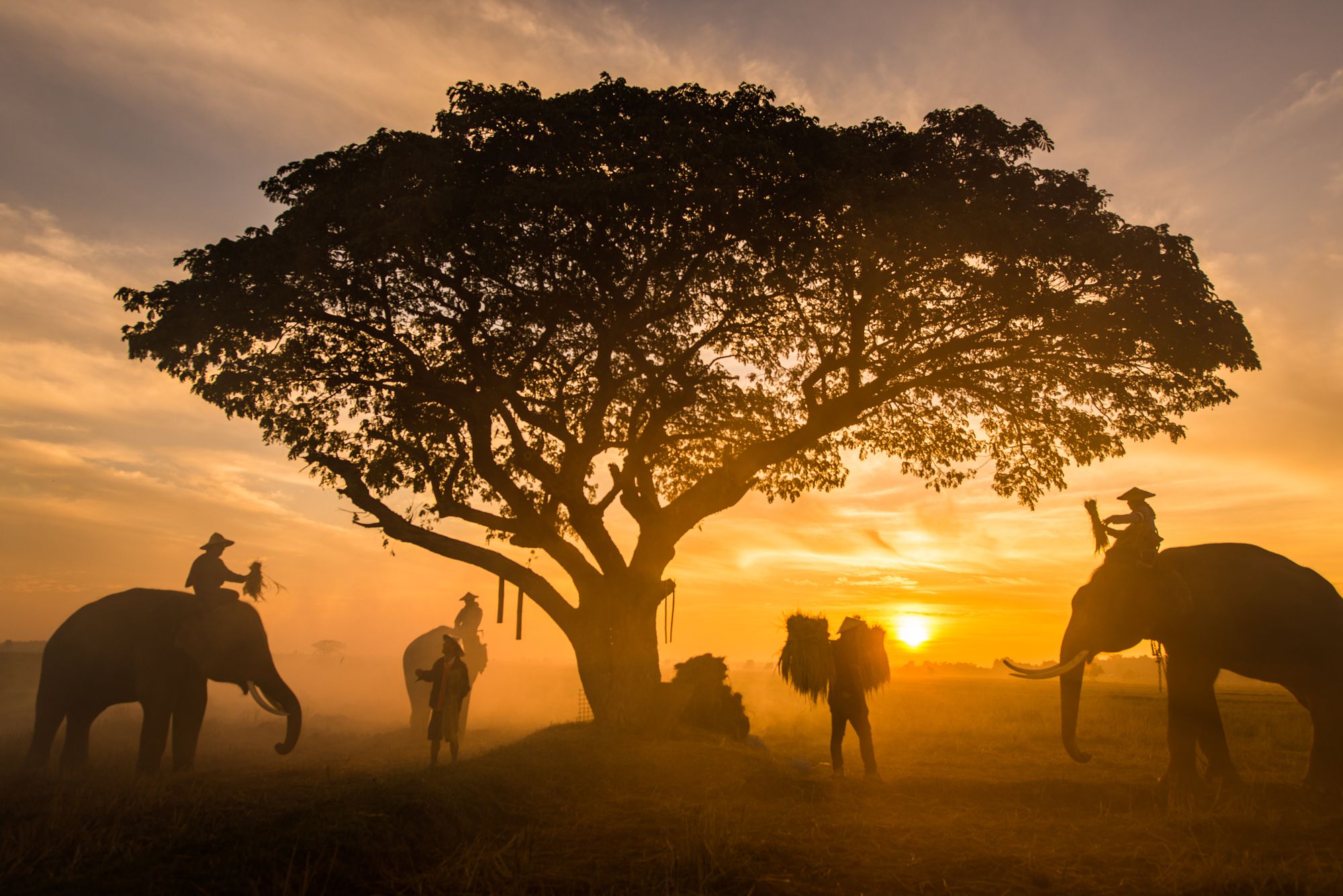
Book Notes:
“When we strive to be somebody, we are actually striving to be somebody else.”
“The moment you want to be somebody, you are no longer free.”
-Jiddu Krishnamurti
“They say that nobody's perfect. So why not be nobody?"
“Humility does not mean thinking less of yourself than of other people, nor does it mean having a low opinion of your own gifts. It means freedom from thinking about yourself at all."
-William Temple
“Nobody, it seems, wants to be just a nobody.”
“Maybe true fulfillment in life requires an emptying, not a filling.”
“Every society reproduces its culture - its norms, its underlying assumptions, its modes of organizing experience - in the form of personality."
-Christopher Lasch
“Narcissism appears realistically to represent the best way of coping with the tensions and anxieties of modern life, and the prevailing social conditions therefore tend to bring out narcissistic traits that are present, in varying degrees, in everyone."
-Christopher Lasch
“We bob our heads to the lyrics of popular songs, many of which revolve around how totally awesome the surrogate singer is, not to mention the products that he or she wears, drives, and consumes."
“All my life, I've always wanted to be somebody, but I see now I should have been more specific."
-Lily Tomlin
“There’s a story told in the Buddhist scriptures about a woman who has just lost her only child. She goes to the Buddha and pleads with him to restore her son to her. Surprisingly, the Buddha agrees - but under one condition.
'Go to every home in the village,' he instructs the grieving mother, 'and bring me a mustard seed from the household that hasn't had a tragedy like yours.'
The poor woman starts knocking on doors and, well, you can guess the outcome. Let's just say she didn't bring back any mustard seeds to the Buddha."
“No one is getting through life unscathed. We're all in the same boat, and when it comes to our susceptibility to suffering, that boat is the Titanic."
“We know how complex we are - each one of us is an incredibly intricate mass of experiences, proclivities, memories, opinions, influences, and feelings. We're so complex, it's hard to know who we really are! But when we encounter one another, we seem to forget that others are at least as complicated."
“This very same ability to discriminate can be used to appreciate the distinctive and unique beauty and goodness in every particular thing and being."
“So here’s one helpful hint for solving the problem of pride: If you're liable to take inordinate self-regard due to your intellect, go to Harvard or the University of Chicago and hobnob with some hardcore eggheads.
If you are vain about your good looks, stop hanging around with people you feel are obviously uglier and enter a beauty contest!
If you think you're so amazing because of your money, quit socializing with those who have less and chill with really rich people!
If you think you're cool because of the flexibility you demonstrate when at your local yoga studio, go to an international yoga conference and check out the real competition."
“In order to gain the power, we have to accept the responsibility.”
“Ignorance is the belief that what is impermanent is permanent, what is impure is pure, what will bring suffering will bring happiness, and what is without an essence has an essence."
-The Yoga Sutra
“Wake up! Did you think this would last forever?”
“It’s not really ‘self-improvement’ if it’s all about you.”
“The conceptualized 'somebody self' is found at the nexus of two times - the past and the future - that themselves only exist as ideas within the present mind."
“If karma is memory, and memory is what composes our self-image, then improving our sense of self is a matter of acting, speaking, and thinking such that we will look back at our lives with dignity instead of embarrassment: I was the kind of person who tried to live a good life, a life guided by nonviolence, honesty, integrity, charity, and the other virtues.
We practice being a better person today (not just in terms of our past, but in an ongoing way as we interact with the world and other people) so that we will think about ourselves in a better way tomorrow."
“Everybody thinks of changing the world, but no one thinks of changing himself.”
-Tolstoy
“No one, when faced with a problematic person or situation, judiciously, cogently, and reasonably considers their options and then elects to have a big meltdown."
“If you can’t do it for yourself, then do it for others.”
“We are in every moment creating the causes for who we will be in the future. For our future happiness, or its opposite, depends on what we do, say, or think in the ongoing present."
“Any task is easier if it's done selflessly rather than egotistically, and that very much includes the big life project of improving the 'somebody self' - and thereby improving the world we live in."
“The best thing we can do for ourselves is to consider how we can help others.”
“We are tied to those we dislike just as we are to those we more willingly associate with. Relationships fueled by negative emotion keep us chained to a self-conception marred by disaffection and unhappiness."
“To oppose something is to maintain it.”
-Ursula K. Le Guin
“In conversations with my father and other elderly people at the old folks' home, I learned that what really mattered to them was not their former professions (no one spoke much about what or who they 'used to be' or the possessions they had once acquired (now, for the most part, gone) or the exotic holidays they once enjoyed (just fading memories and tattered photographs.
None of this was that important to them anymore - and none of it will be important to any of us if we're lucky enough to grow old before we die.
What mattered to the elderly was who loved them. What was of greatest import was who cared about them enough to come visit, to spend a few hours of their lives with those who had been stripped of the more tenuous ego props we often rely on to feel like we're really somebody."
“Washing the dishes offers the same potential for getting into the zone as motorcycling or rock climbing do. There's nothing in any Himalayan cave that's missing from the office when it comes to getting into the flow. Any action done with mindful unselfconsciousness can take us there."
“The best way to prepare for tomorrow is to concentrate on today, for it is in the present that we are creating the causes that will govern our relative ability to deal with the events of the future."
“Flailing about with the oars in a frenzy of compulsive activity, worrying about what might be around the next bend, we forgo the opportunity to leisurely enjoy the boat ride and do what we need to do in the present - gently, merrily, and in a way that doesn't take the 'dream' so very, very seriously."
“Arjuna, throughout the three worlds there is nothing whatsoever that I need to do. There is nothing unattained that I need to attain, and yet I still engage in action...While those who are ignorant perform actions out of attachment, the wise one, unattached, acts in order to maintain the world."
-The Bhagavad Gita
“The object isn’t to make art, it's to be in that wonderful state which makes art inevitable."
-Robert Henri
“It is the complete acceptance of whatever the next scene is in the ever-changing drama of life that serves as the precondition for losing oneself in the play."
“The separation between the self and the world evaporates, and we become one with the life we are living."
“We have the choice of two identities: the external mask which seems to be real, and the hidden, inner person who seems to us to be nothing, but who can give himself eternally to the truth in whom he subsists."
-Thomas Merton
“We gain a better sense of self when we're not thinking about ourselves - and this is the seemingly paradoxical key to true 'self-improvement.'"
“But we can definitely say this: Being nobody is not being nothing. It is an absence (no-body) and not a presence (some-body), but it is the emptiness that makes the plenitude possible.
It is the hole in the middle that makes a donut what it is; it is the empty glass that can hold whatever is poured into it; it is the undifferentiated ocean from which all particular waves arise, last for a while, and then return to their source.
This absence is the space in which all manifestation and life forms take place. It is nobody from which any and all somebodies arise and into which we are all reabsorbed.
Nameless but not a nonentity, the ultimately real is the silence from which all sounds, words, names, and concepts emerge and back into which they dissolve."
“Even in ordinary life, you feel the futility of words. And if you don't feel the futility of words, that shows that you have not been alive at all; that shows that you have lived very superficially...When for the first time something starts happening which is beyond words, then life has happened to you, life has knocked on your door."
-Osho
“While living, we are in between birth and death; when we're middle-aged, we're in between youth and old age; when we're asleep, we're in between the end of last night's waking consciousness and the beginning of tomorrow morning's. And in this very moment, we're in between the past and the future."
“The liberated person has realized the true nature of both the individual self (transient, changing, finite, and restricted) and the universal self (eternal, unchanging, infinite, and universal)."
“Enlightenment will be the ego's ultimate and final disappointment."
-Chogyam Trungpa Rinpoche
“The liberated man or woman is a completely happy somebody, knowing he or she is just in between being nobody, and not grasping onto an illusory version of his or her identity."
"Knock, and He'll open the door. Vanish, and He'll make you shine like the sun. Fall, and He'll raise you to the heavens. Become nothing, and He'll turn you into everything."
-Rumi
“There is no way to repay what I owe to my teachers - my spiritual mentors, academic guides, close friends, fellow travelers on the path, and those who pose as my students.
Finally, although it may sound stupid, I'm really grateful to my computer and all it makes possible. I simply could not have written this book without the magic that has become available to us. We live in amazing times."
“The extraordinary is discoverable within the ordinary; the ultimate within the relative; the transcendent within the immanent."
“The mind takes the form of what it perceives. If what you perceive is the limitless, well, you've just dropped into your true nature."
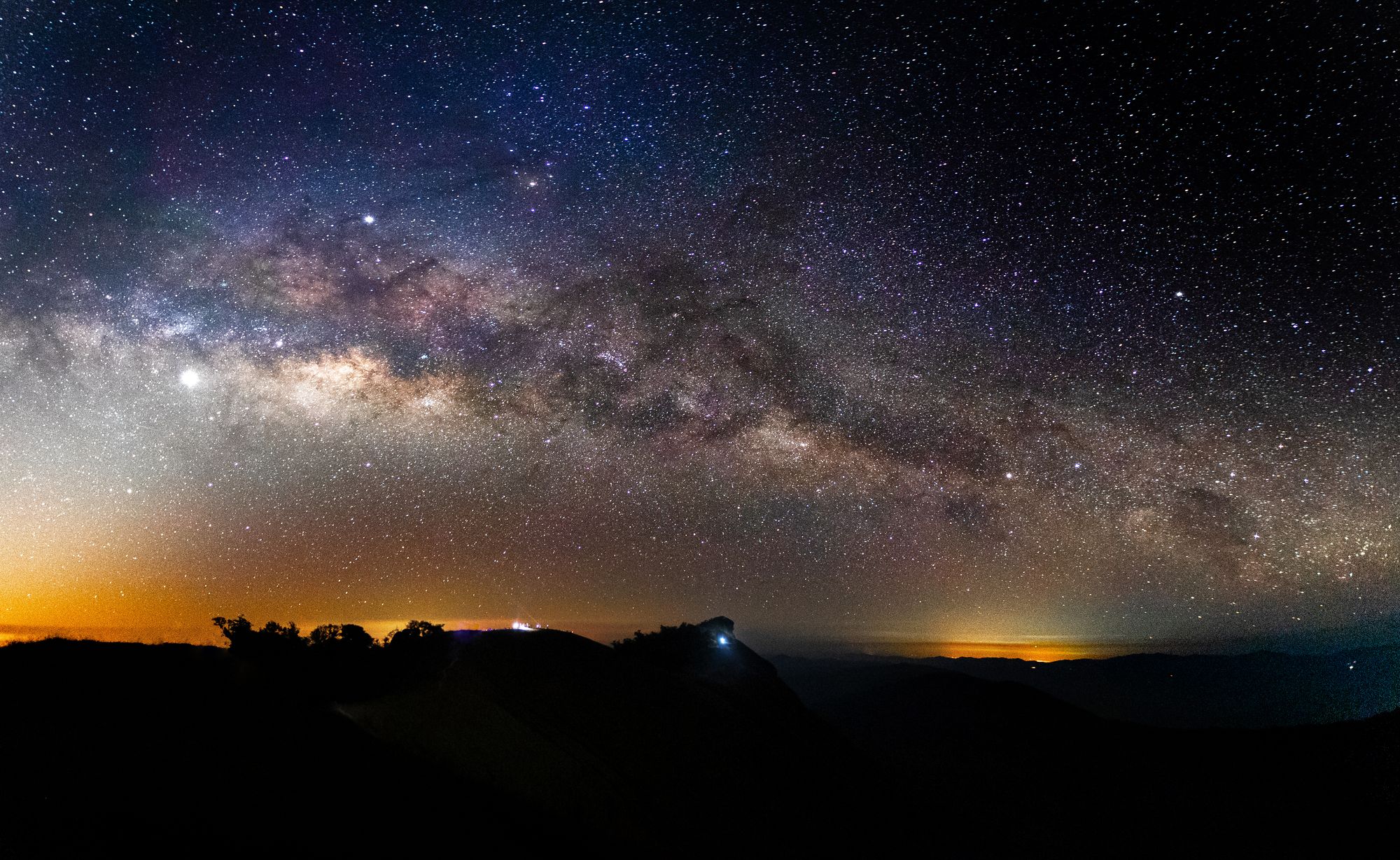
Important Insights from Related Books:
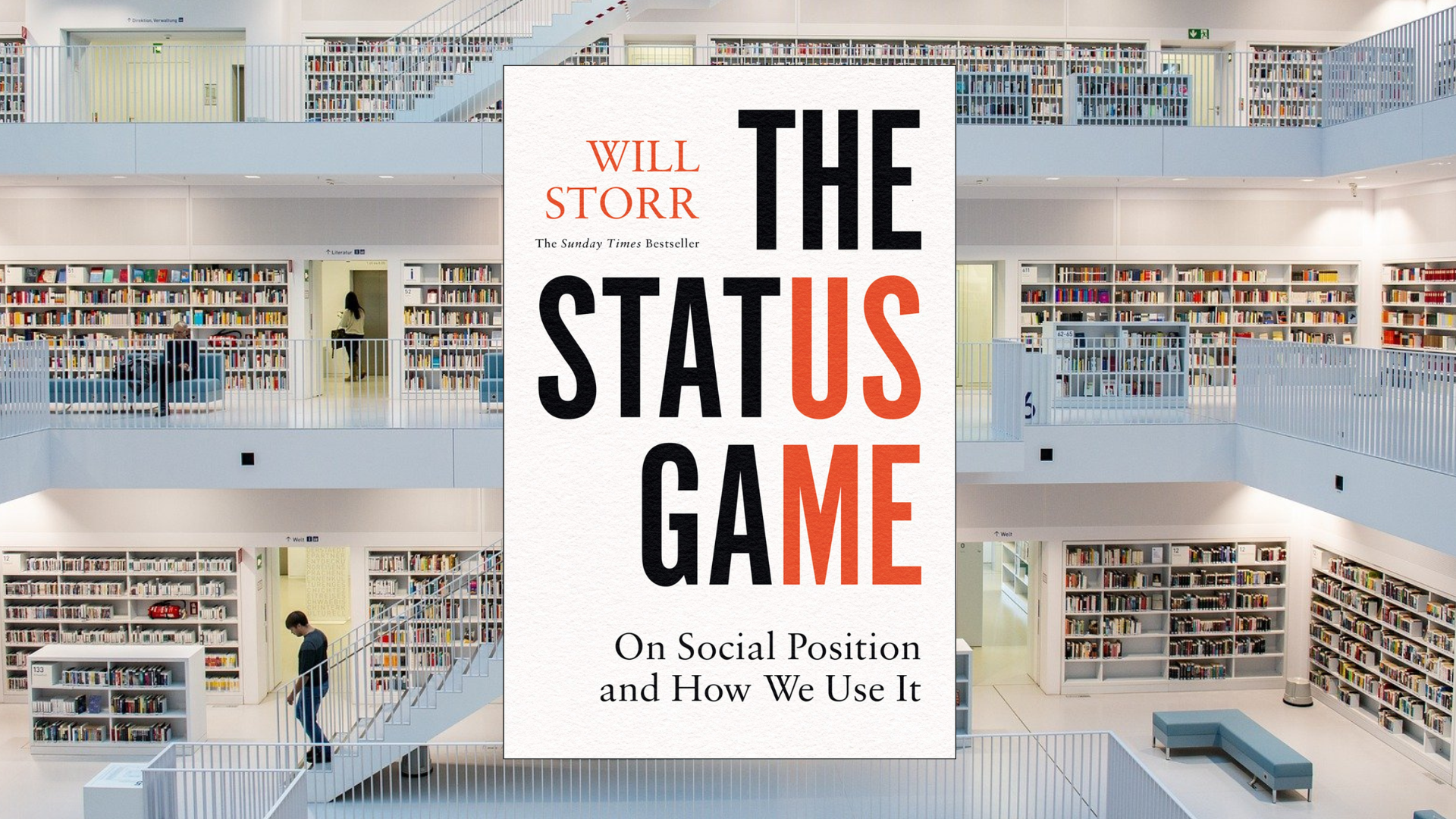
The Status Game, by Will Storr:
“We can think of our reputation as a symbolic version of us that exists in the minds of others. Human brains required the capacity to store these highly detailed symbolic selves. Our neural worlds are crowded with hallucinations of others so vivid they can almost be summoned at will. We all walk around with everyone we know crowded inside our heads.”
-Will Storr, The Status Game
Put any group of humans together, and almost instantly they'll start trying to figure out who should lead, who's most worthy of respect, and who should be praised and emulated.
Not only that, but we each carry around a sense of where we stand in that hierarchy, and many of us go to rather extreme lengths in order to rise to the top.
According to the award-winning writer and journalist Will Storr (award-winning = high status!), the "status game" that we're all playing is an invisible thread that runs through the best and the worst of what human beings do all day.
Whether we're "winning" or "losing" affects our happiness and our self-esteem, our relationships with others, our goals in life and whom we choose to copy, and even how long we'll live.
All this being the case, just think about how complicated it is to be alive!
You've got all these forces - the cravings for status and for love, social conditioning and the impact on the individual of the wider culture, the subconscious fear of death, the swirling emotional storms affecting our thoughts and actions all day long, and so much more - how do we even live? How do we make sense of it all?
For that, we should be grateful to Will Storr as he explains a few of the rules of the Game of Life...
Sample Quotes from the Book:
“It’s this distorted and partial avatar we play at life with, not our whole self. Nobody ever truly knows us. They never will.”
“Status is an essential nutrient found not in meat or fruit or sunlight but in the successful playing of our lives. When we feel chronically deprived of it, or disconnected from the game, our minds and bodies can turn against us. To our brains, status is a resource as real as oxygen or water. When we lose it, we break.”
“Without symbolic prestige, it’s difficult to see how complex societies could have developed.”
Read the Full Breakdown: The Status Game, by Will Storr

Awareness, by Anthony de Mello:
“But I’ll promise you this: I have not known a single person who gave time to being aware who didn’t see a difference in a matter of weeks. The quality of their life changes, so they don’t have to take it on faith anymore. They see it; they’re different. They react differently. In fact, they react less and act more. You see things you’ve never seen before."
-Anthony de Mello
What does it feel like to imagine oneself as intimately connected with Reality - with everything that exists - and to live with your eyes, and your heart, wide open?
Anthony de Mello points the way to an understanding - and awareness - of what such a fully realized life feels like, and just like life, this book is full of surprises. Awareness began as a series of lectures that were later combined into a book, so it helps to imagine him speaking to an audience while you read it, and that you are in that audience.
De Mello was a Jesuit priest and spiritual teacher and he uses stories, parables, jokes, and striking insights - which he combines with his deep humanity and infinite care and affection - to wake people up to the life that's been sitting right in front of them the whole time they've been alive.
De Mello taught that you don't have to "add" anything to your life to make it - or yourself, for that matter - into everything it could be; rather, it's a process of subtraction, of dropping your attachments, your labels, your concepts, and all the other obstructions to your happiness, which is, after all, your natural state.
Sample Quotes from the Book:
“The moment you put things into a concept, they stop flowing; they become static, dead. A frozen wave is not a wave. A wave is essentially movement, action; when you freeze it, it is not a wave. Concepts are always frozen. Reality flows."
“The highest knowledge of God is to know God as unknowable. There is far too much God talk; the world is sick of it. There is too little awareness, too little love, too little happiness, but let's not use those words either. There's too little dropping of illusions, dropping of errors, dropping of attachments and cruelty, too little awareness. That's what the world is suffering from, not from a lack of religion."
“Have you ever experienced your is-not-ness? In the East, we have an image for this. It is the image of the dancer and dance. God is viewed as the dancer and creation as God's dance. It isn't as if God is the big dancer and you are the little dancer. Oh no. You're not a dancer at all. You are being danced! Did you ever experience that?"
Read the Full Breakdown: Awareness, by Anthony de Mello
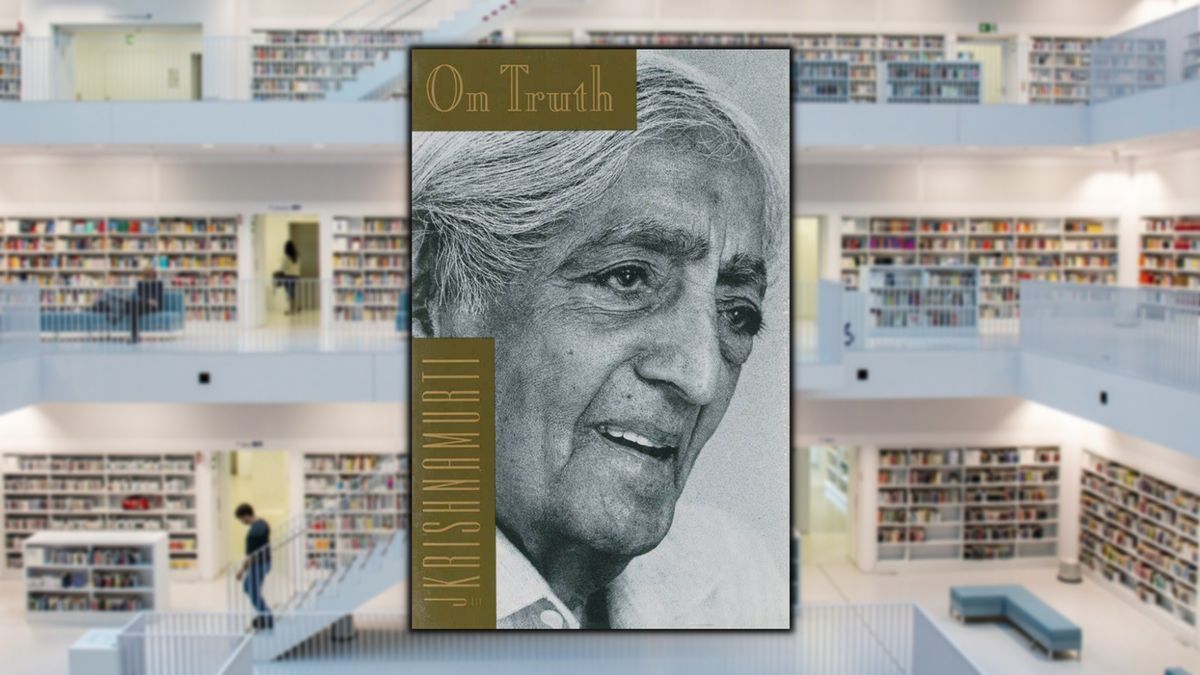
On Truth, by Jiddu Krishnamurti:
“Truth is a thing that is living from moment to moment - to be discovered, not believed in, not quoted, not formulated. But to see that truth, your mind and your heart must be extremely pliable, alert."
-Jiddu Krishnamurti
Thinking that you can find one Ultimate Truth that's going to be final and complete for all time is like a musician trying to hold down one note forever and ever; like trying to close your fist around a flickering flame; or like trying to stop a sunset and hold it in place until the end of time.
Trying to pin down the truth of human existence is an impossible task, and trying to fossilize that truth with words is always a mistake. Not only that, but no one can lead you to the truth either. Sure, they can suggest ways of approaching the truth, but they can never simply hand you the real thing.
Jiddu Krishnamurti understood this from a very early age when in 1929 he voluntarily dissolved the religious organization that sought to name him the new World Teacher and get him to take the lead of their new movement.
In a famous speech entitled Truth is a Pathless Land, he stated that it's impossible to follow anyone to truth and that you'll never find out the basic truth about the structure of Reality by listening to some leader or guru.
So naturally, Krishnamurti in this book - which is a collection of his public talks about the nature of truth and the various ways in which the mind distorts and obscures it - never claims to have access to some special truth that you or I don't have.
In my own life, Krishnamurti motivated me to question everything I thought I knew (and was told) about the world and the mystery of existence. He made me aware of the inner workings of my own mind and helped me see how truth arises when effort stops, when the mind is perfectly empty, and when there is only direct experience of the present moment.
All this is to say that this book won't teach you anything that's "true." Likewise, this breakdown can never claim to feature the Ultimate Truth about anything! There is no authority "out there" that can lead you to the truth, no "script" that you can follow that will lead you to the answers to the most important questions of life. But that's what makes being alive at all so damn exciting!
Dead, lifeless "truths" are just...boring. Life is always moving and changing, and so is the truth of Reality and Existence. The search for what's true is the wildest adventure in the whole damn universe, and we're all living it right now.
Sample Quotes from the Book:
“To be is to related. Not to understand relationship is misery, strife.”
"Because I am going to become something, there is never a complete understanding of myself, and understanding myself - what I am exactly now - does not require the cultivation of memory. On the contrary, memory is a hindrance to the understanding of what is."
“I am suggesting that in the field of reality conflict is the very nature of that reality. So if there is an understanding, a radical change, in you, if there is the ending of conflict in a human being, then it affects the whole consciousness of man, because you are the world, and the world is you."
Read the Full Breakdown: On Truth, by Jiddu Krishnamurti
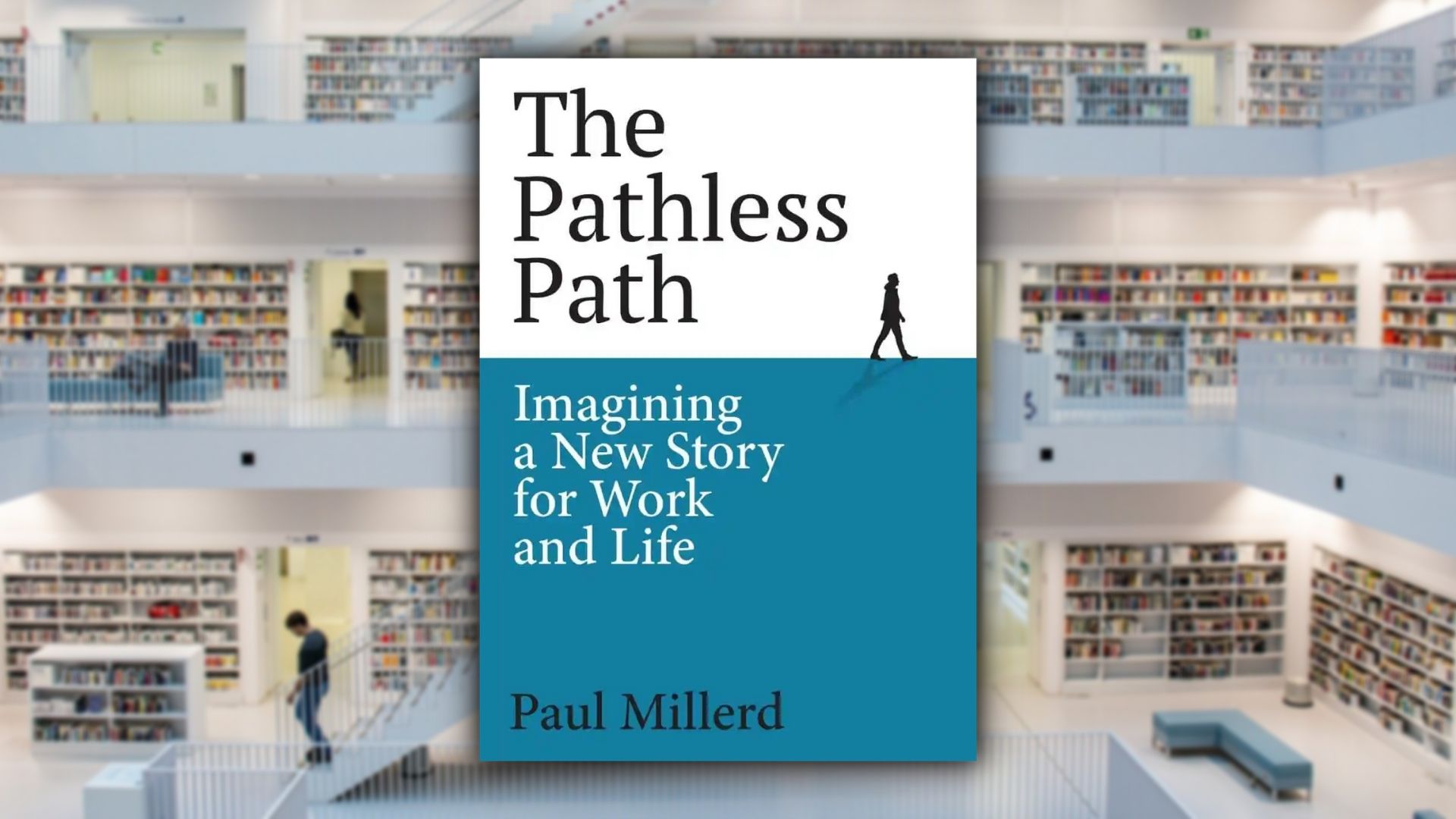
The Pathless Path, by Paul Millerd:
"I want to see people live the lives they are capable of, not just the ones they think they are allowed to live."
-Paul Millerd, The Pathless Path
The chances of a perfect life path being successfully scripted for you by someone else are precisely zero. We exist in a community of others, but individually, we are completely alone and our lives are up to us.
More than that, we have the opportunity - the ability - to curate our own reality every moment, and by definition, no one can do this for us. We think that the meaning of life is "out there" and that we have to find out what it is. When in reality, it is Life that asks us the questions, and how we live is our answer.
In the same way, Paul Millerd doesn't have any answers. There are no hacks or step-by-step formulas in this book, no mandatory reading lists, and no milestones you have to hit in order to live a meaningful life.
Instead, The Pathless Path is about the invisible scripts that shepherd us into prescribed modes of living and being in the world; it's about freedom and creativity; it's about money, meaning, and work; and it's about being fearlessly, unapologetically yourself, in a world that shouts back, "You can't do that!"
It's also about going somewhere, but not following anything. Getting lost, and finding yourself. Leaving, but never arriving.
The default path - doing what everyone is doing, living the same day, week, month, and year that everyone else is living over and over again - used to work for most people. But this future that we're building together is not a default future. We have so many more options and opportunities - possibilities for our lives that we can explore and take to their logical conclusions. The default path is dying away, and we have to come to terms with our own freedom and what we want to do with it.
I mean, here you are, the universe's most spectacular creation, and you're just kinda getting by. Living a "good enough" life, surviving day to day, coasting through a default world you never made.
The Pathless Path is Paul Millerd's answer to the question of what makes meaningful work and what we might aspire to in our lives. But you and I can never be Paul Millerd. His life is taken. You can only be yourself, and I can only be myself. The pathless path is narrow, wide enough for only one person. You.
Sample Quotes from the Book:
“The pathless path is an alternative to the default path. It is an embrace of uncertainty and discomfort. It's a call to adventure in a world that tells us to conform. For me, it's also a gentle reminder to laugh when things feel out of control and trust that an uncertain future is not a problem to be solved."
“My restlessness was easy to hide because my path was filled with impressive names and achievements, and when you're on such a path, no one asks, 'Why are you doing this?'"
“After reading this book, you should no longer be able to look at your current path and think, 'This is definitely the only way.' Instead, I hope you are able to shift to a place where you know that you have more freedom than you think, and your path can become something you choose again every day."
Read the Full Breakdown: The Pathless Path, by Paul Millerd
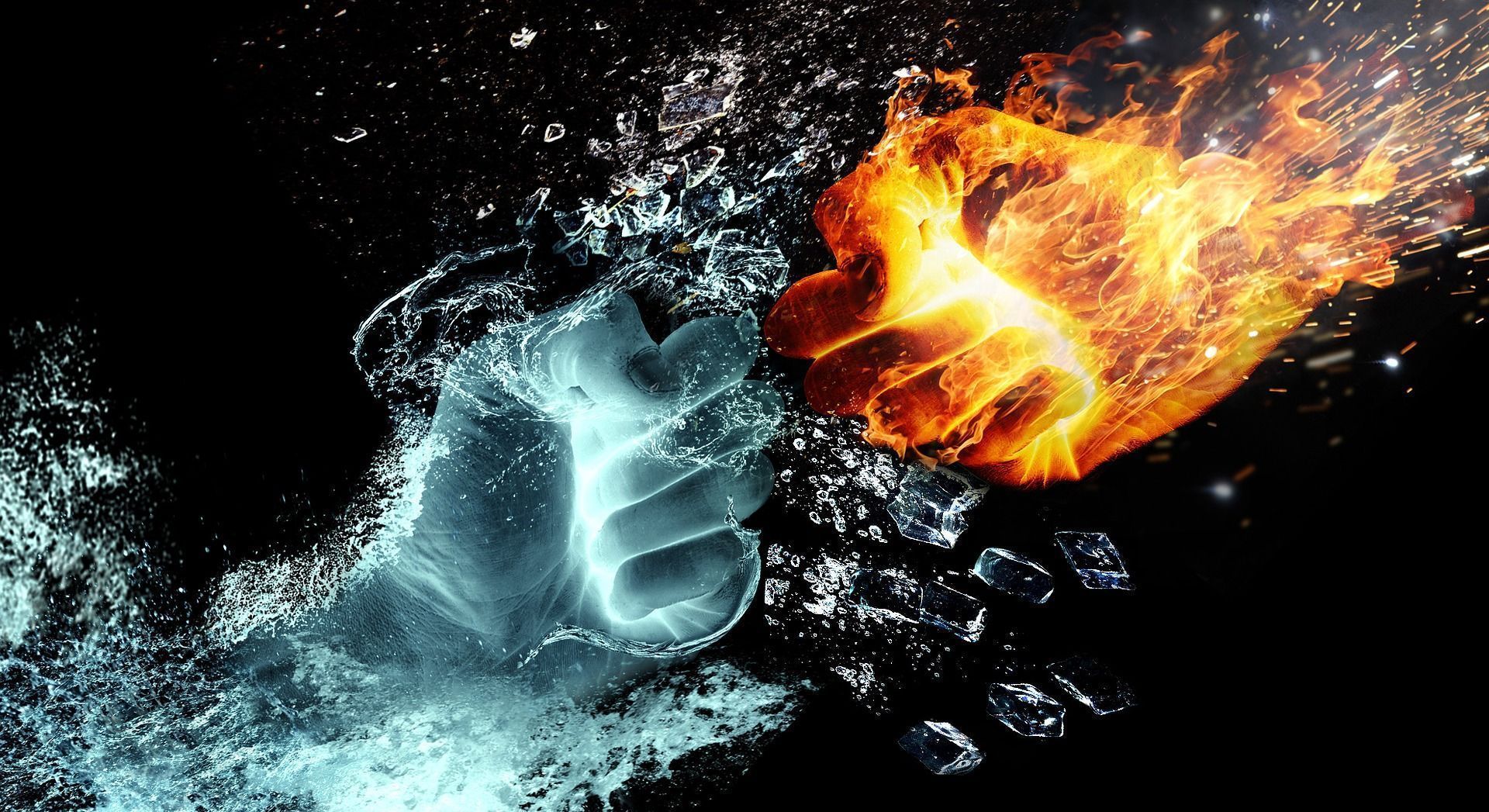
The View from the Opposition:
No one's ideas are beyond questioning. In this section, I argue the case for the opposition and raise some points you might wish to evaluate for yourself while reading this book.
#1: Every Other Religion Says He's Wrong
Writing about other people's religions is always tricky, and personally, I never, ever force my beliefs onto anyone else. Plus, I keep encountering new information, so my beliefs change all the time anyway!
But it's necessary to point out that this "we are the total universe" stuff is a very Eastern idea, and obviously, it's not what most people have in mind when they think of religion - their own beliefs, or anyone else's.
In the West, especially, we have this idea of one all-knowing Creator somewhere "up there" who is alleged to be very different than you or me. To claim that we are synonymous with God - that God and us, together, make up the universe is a pretty blasphemous idea, depending on whom you talk to!
In fact, it had to be that way for religions like Christianity to survive in the first place. Any religion that didn't inspire such feverish belief on the part of its followers couldn't be expected to survive for very long without it. Call it the "evolutionary" theory of religion, in that the "strongest" and "fittest" religions survived, the ones who inspired fierce, fanatic loyalty among their followers.
So yeah, writing about religion is tough. People get all touchy about this stuff!
Let me bring Johann Wolfgang von Goethe into this discussion and then I'll move on. In his amazing play, Faust, the main character makes a deal with the devil and - spoiler alert! - loses. But then Goethe does something interesting...
Faust is miraculously saved in the end, because Goethe believed that no God worth believing in would ever punish anyone eternally. I love Goethe for that, and that's also pretty much how I feel personally.
Even Tolstoy, in his book, Anna Karenina, puts forth the idea of God as an understanding Father who knows that his children are going to make all kinds of mistakes...and still welcomes them back in the end.
All of which is to say, nobody has religion, life, and the universe all figured out. The most we can do is keep an open mind, try to be good to each other, and forgive ourselves when we inevitably stray from the path.
#2: On a Personal Note...
This is hardly theological criticism or anything (or even literary criticism), but personally, I found rather large portions of Be Nobody to be quite annoying, and I would totally understand if many other people felt the same way.
Now, I still absolutely defend it as a choice for inclusion in the Stairway to Wisdom, it's just that the terminology Marut uses is sometimes needlessly confusing, and it's made worse with all those lame wrestling references and the like. I've kept them out of this breakdown but... yeah...they're in there. It's painful reading sometimes.
It was hard enough to follow him when he was talking about somebodies and nobodies and somebody selves and being nothing and all the rest of it.
I mean, just say it! Man!
Anyway. As I said, this isn't necessarily a criticism of the ideas themselves, but rather their presentation. His writing style isn't for everybody. But that's okay!
Multitudes of marvelous writers have said the same things in different ways, and that's why there are so many books out there to choose from. If one author doesn't speak to you, converse with another.
"The test of a first-rate intelligence is the ability to hold two opposed ideas in the mind at the same time and still retain the ability to function.”
-F. Scott Fitzgerald
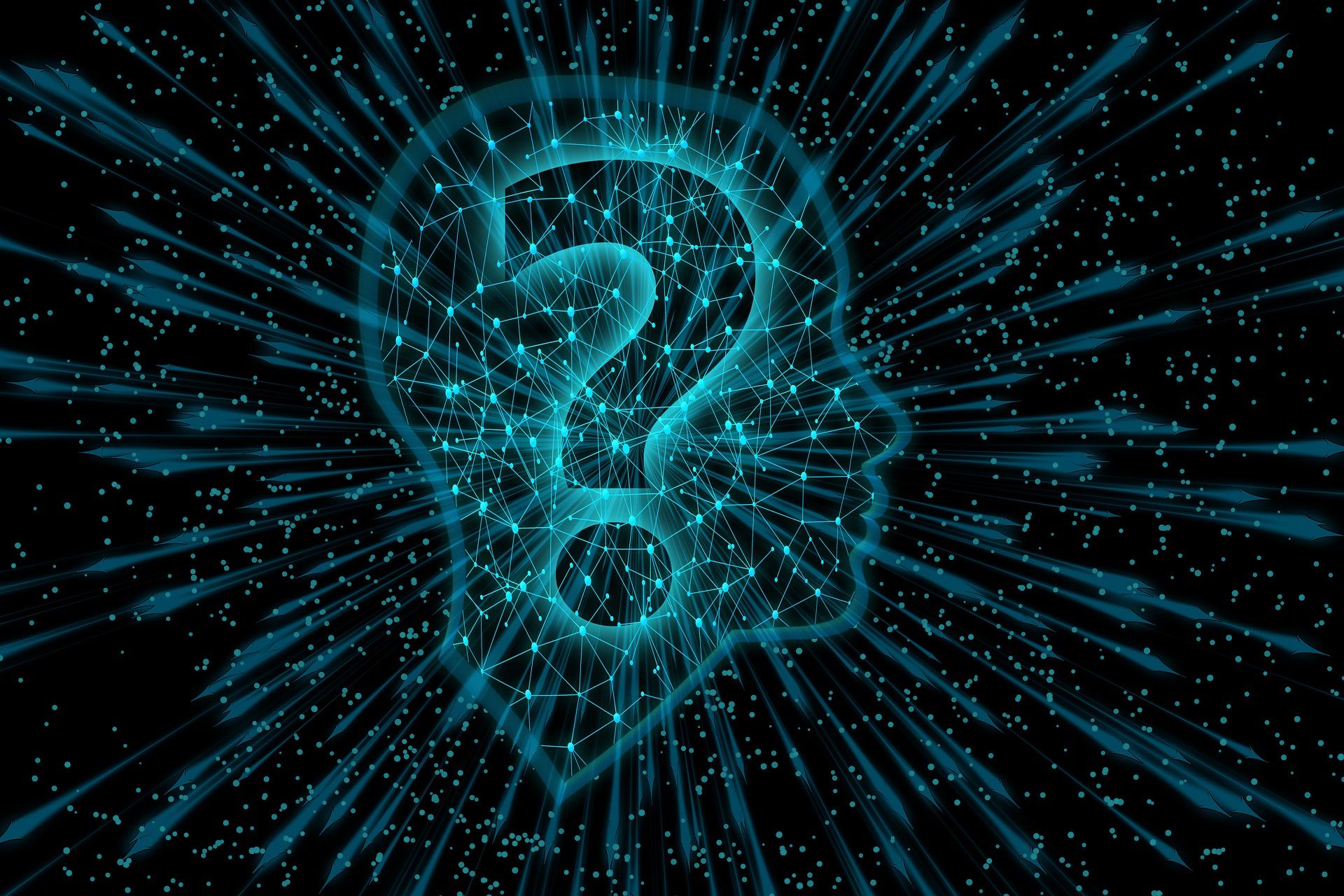
Questions to Stimulate Your Thinking:
The quality of your questions determines the quality of your life. That's also how you get the absolute most out of any book that you decide to read:
You ask great questions the whole time - as though the book was on trial for its life.
Here in this section are a few questions that can help guide and stimulate your thinking, but try to come up with your own additional questions, especially if you decide to read this book the whole way through...
#1: "Which would you rather be: Someone else? Or more fully yourself?"
#2: "Who would you be if the world didn't already tell you who you are?"
#3: "Is there anything about yourself that is unchanging? Something that you can point to as being your Real Self? What might that be? Are you sure?"
#4: "Which do you have greater control over: Changing the world? Or changing yourself?"
#5: "Which emotions are capable of being balanced? Is it possible to feel a 'reasonable' amount of hatred? Or envy? Or disgust? Or must these destructive emotions be rooted out entirely?"
#6: "In a world where everybody is clawing and clamoring to be someone else, someone better or more worthy, do you see the value in giving up that whole game and simply being?"
#7: "What's the difference between humility and low self-esteem?"
#8: "How can you make someone else feel good about themselves without diminishing your own self-concept?"
#9: "Do you think the time spent trying to become someone else might be more profitably invested in trying to become more yourself?"
#10: "Who ARE you?"
"Judge a man by his questions, rather than by his answers."
-Voltaire
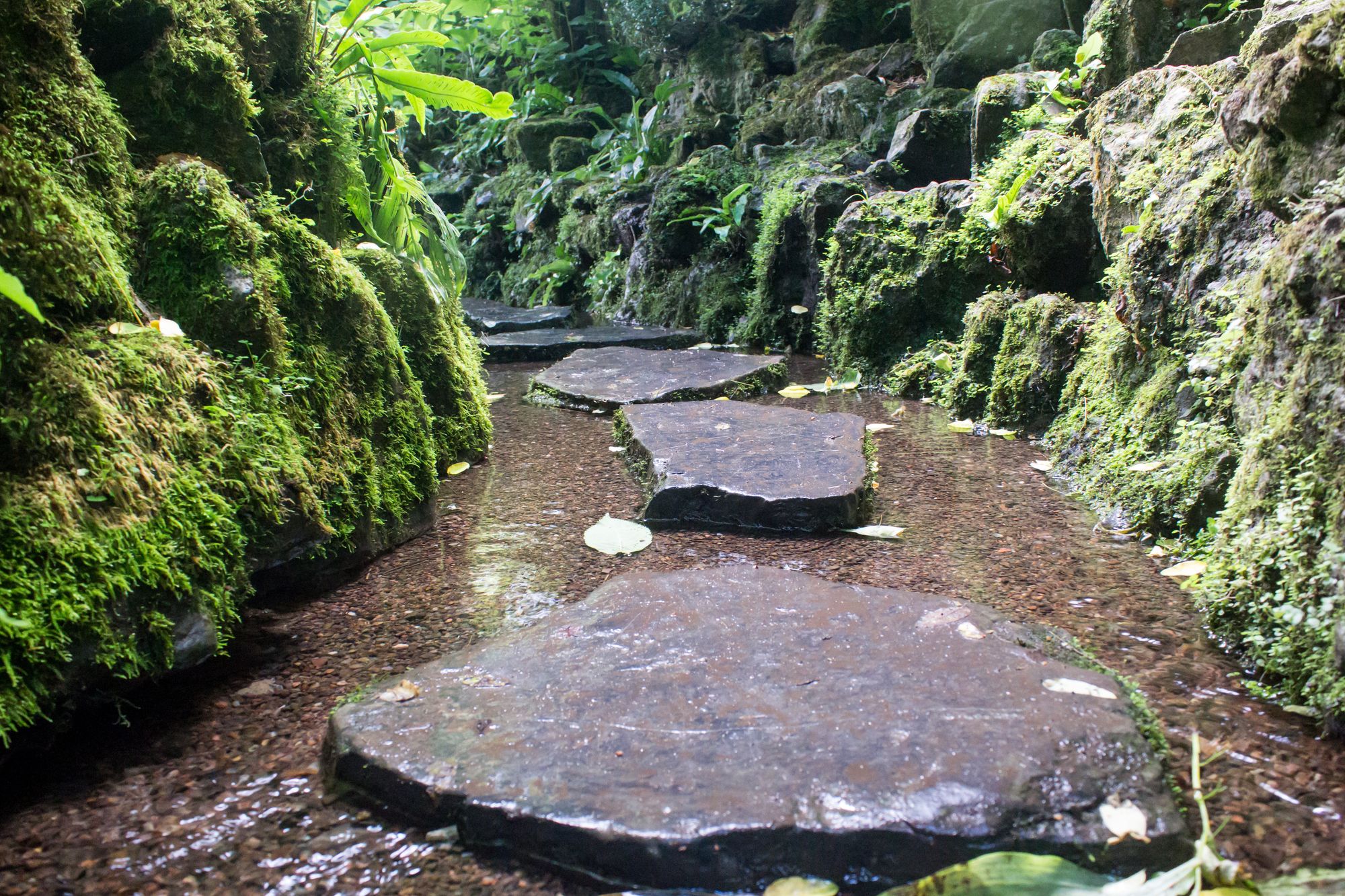
Action Steps:
So you've finished reading. What do you do now?
Reading for pleasure is great, and I wholeheartedly support it. However, I am intensely practical when I'm reading for a particular purpose. I want a result. I want to take what I've learned and apply it to my one and only life to make it better!
Because that's really what the Great Books all say. They all say: "You must change your life!" So here, below, are some suggestions for how you can apply the wisdom found in this breakdown to improve your actual life.
Please commit to taking massive action on this immediately! Acting on what you've learned here today will also help you solidify it in your long-term memory. So there's a double benefit! Let's begin...
#1: Manage Your Pride
Pride isn't necessarily a "bad" thing. For example, it's good to take pride in your appearance, your work ethic, commitment to excellence, etc. None of these things are harmful in the proper measure.
But excessive pride is one of the main causes of collapse, both in the lives of individuals and nations at large. So you're probably going to want to manage it to some extent.
You can start by listing a few of the personal traits you're most proud of right now, and asking yourself the following questions:
"Will they always be with you?"
Are you always going to be young and beautiful? Always going to be amazingly strong? Always going to possess this thing - whatever it is - that elevates your status above others? Or will you eventually be forced to relinquish it one day? How will you feel then? What will sustain you, psychologically, after that happens?
"Do you feel good about these things simply because other people don't have them?"
If your pride is based on the fact that you possess some wonderful trait, quality, or item, and other people don't, that pride is fragile, and will only lead to problems down the line. Do what you can now to uproot this fragile pride.
"Is there someone out there who has more of that thing than you do?"
If there's someone out there with more money, a better education, stronger muscles, a more beautiful face - and there always is - that is threatening to your pride as well. But, fortunately, just by realizing this you'll be able to put your desirable qualities back in perspective. You can still be proud of them! But you'll also be proud of other people for having them too.
#2: Look Outside of Yourself
No matter who they are, virtually everyone is most concerned with themselves and their own well-being - and again, this isn't necessarily a bad thing. You do need to take care of yourself; you do need to look after your own interests, especially if you want to be strong enough to care for others. But again, it's an excessive concern for yourself that leads to all sorts of breakdowns.
For that reason, it's a good idea periodically to look outside yourself and focus on what other people need and want; focus on what they're moving towards in their own lives (or away from) and see if you can help them.
A simple habit that you can perform is to step outside yourself for at least ten minutes each day and think about the problems of others and what they're going through. Bonus points if you actually reach out to help them, or at least let them know that you're there for them.
As an aside, reading fiction develops incredible empathy as well. Being able to mentally inhabit the inner lives of others through fiction and literature will enable you to more powerfully connect with others in real life, and so if you're not reading fiction, you should definitely think about it!
#3: Use the Tools to Fight Mental Afflictions
There are several "tools available" that Lama Marut suggests we make use of when fighting mental afflictions such as pride, envy, and other negative emotions. We'll start with Recognition:
Recognition: This is where you recognize, consciously, that this particular emotion isn't serving you, is potentially dragging you downward. You look at the hate, disgust, envy, etc. and you recognize that it's harmful. That in itself is a powerful tool.
Understanding: This is where you understand that giving in to such destructive emotions drags you down, and you also understand why. You actually see that a life lived harboring these emotions can never be a positive one, and you realize that it's in your best interest to give them up.
De-Identification: This is where you de-identify with the negative emotion and realize that it is not who you really are. You are not your pride, your envy, your shame, your self-loathing. You are none of these things, and they don't have to touch your life.
Determination: This is where you determine to fight back against this negative emotion and work to loosen its grip on your mind and heart. When combined with the first three tools, you'll eventually find that none of these destructive emotions will have a place in your heart anymore.
As Ajahn Chah put it, there will be only one "seat" available in your inner house - where only love can manifest - and all the other harmful emotions, after trying to enter, will find that they have no place to sit down and will then just leave.
#4: Remember What Nobody Feels Like
Trying to be somebody and deliberately being nobody are two qualitatively different experiences. They feel different, and I would argue that a full life can and does often include both.
Lama Marut refers to this as being in flow, where you're constantly alternating back and forth between the somebody self who is active in the world, striving after big goals and making a "name" for themselves, and the nobody self, who realizes that the only purpose of life is to be alive, and who can actually detach from the outcome and enjoy themselves as they're working towards achieving these things out there in the world.
It's a good idea to get a feel for switching back and forth as the situation requires it, and not losing touch with either self. So when you feel yourself getting too caught up in status games and competitiveness, see if you can switch to the nobody self for a little while and remember how good that feels too.
#5: Be a Better Somebody
Eventually, we all return to being somebody. You and I have names, families, responsibilities, interests, and real lives demanding to be lived.
We want to accomplish things; we want to be respected and admired; we want to feel good about who we are and what we've done.
None of this is harmful in and of itself. But I would humbly suggest striving to be a better somebody. Improve yourself in all sorts of ways - and make the people around you better - while at the same realizing that there are better and worse ways of going about it.
Kindness. Empathy. Compassionate concern for others. Healthy ambition. An active interest in your health and well-being. A voracious hunger for knowledge and wisdom. These are all fantastic things, worthy of being celebrated and actively cultivated in oneself. And the best part about it is that none of them require you to be someone other than who you already are.
"The path to success is to take massive, determined action."
-Tony Robbins

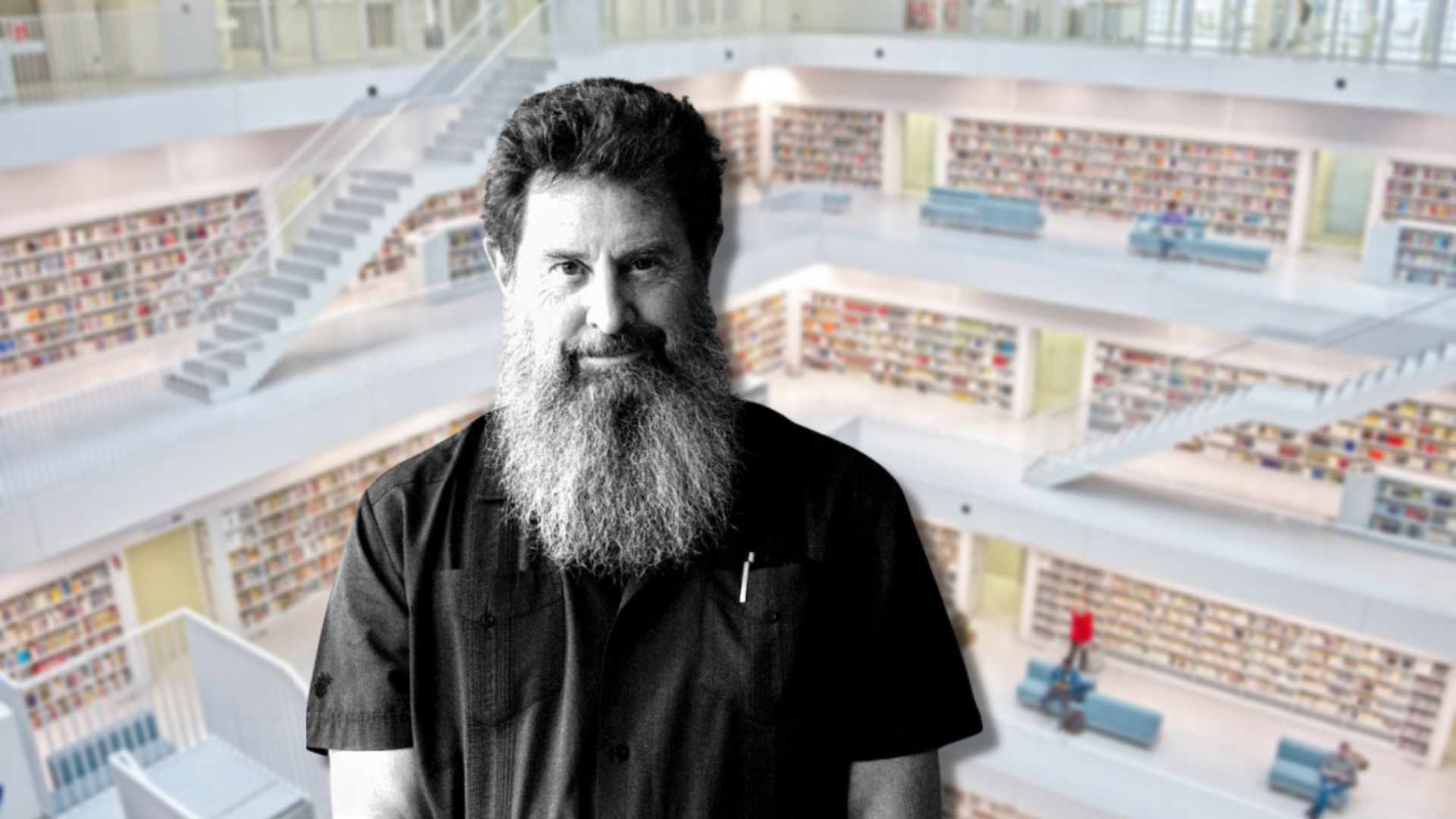
About the Author:
Lama Marut (a.k.a. Brian K. Smith) was extensively trained in the spiritual traditions of India and Tibetan Buddhism.
He held a Ph.D. in Comparative Religion and taught for over two decades in the academic world, first at Columbia University and later at the University of California, where he retired as Professor Emeritus in 2004.
Marut lived as a Buddhist monk for eight years before "reemerging" into mainstream society to help people all over the world become more fully themselves. Before his death, he was Spiritual Director of eight “Middle Way Centers” located in North America, Australia, and Singapore.
With his unique mixture of erudition and earthiness, intensity and humor, conviction and openness, Lama Marut’s message is easily accessible and often life-changing.
Additional Resources:
"Incite Happiness" | Full-Length Documentary
Mindfulness in Context with Lama Marut | Seminar
This Book on Amazon:
If You Liked This Book:
A Spiritual Renegade's Guide to the Good Life, by Lama Marut
Food for the Heart, by Ajahn Chah
Don't Bite the Hook, by Pema Chodron
Awareness, by Anthony de Mello
On Truth, by Jiddu Krishnamurti
Discover the Immeasurable, by Jiddu Krishnamurti
Finite and Infinite Games, by James P. Carse
The Pathless Path, by Paul Millerd
